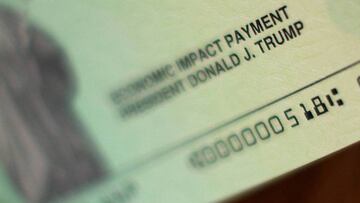Stimulus check: how many people would be missing it and why?
More than 150 million Americans have received their $1,200 payment relief for the coronavirus pandemic, but there are roughly 12 million who may not receive theirs.

About 12 million people in the United States could miss out on a stimulus check worth up to $1,200 per individual amid the Covid-19 pandemic according to the Center on Budget and Policy Priorities. The millions of people who are at risk of not receiving this payment are mainly low-income black and Hispanic people in the U.S.
Missing out on stimulus check
These individuals earn less than $12,000 individually, or $24,000 per couple, and are not legally required to file a tax return. While non-filers who are Social Security, Railroad Retirement, Supplemental Security Income or veterans’ pension beneficiaries received their payments automatically, many non-filers may miss out on their money if they don’t file a separate form.
See also:
- $4,000 Travel Tax Credit: proposal published for coronavirus aid package for tourism industry
- Second Stimulus Check: when will I know what the payment date is?
- Stimulus check calculator: how much would my HEROES Act payment be?
- Stimulus check: how does the government create stimulus payments
- What is known so far about the second payment of $1,200?
- $4,000 stimulus credit proposed in US: how would it work?
"This group of non-filers eligible for payments are disproportionately people of ethnic minorities because they are likelier to have lower incomes due to historical racism and ongoing bias and discrimination," the report said.
The majority of stimulus-check recipients were able to get the money automatically because they filed their 2018 or 2019 taxes and the IRS sent via mail roughly four million Visa debit cards to Americans who don’t have banking information. These 12 million Americans who don’t file taxes have until 15 October have to fill out the ‘Non-Filers form.”
Americans who have received their first payment
Related stories
The Treasury Department had made about 159 million stimulus payments as of 5 June, according to the House Ways and Means Committee. The House committee forecasted that between 30 million and 35 million payments still needed to go out.
Individuals earning less than $75,000 and couples making less than $150,000 qualify for a $1,200 payment, plus an additional $500 for each child younger than 17 years of age.

